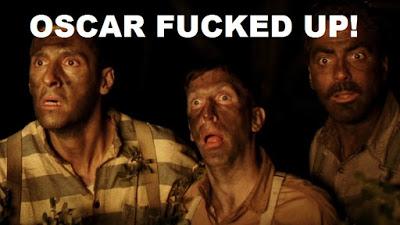Fredric March: The Best Years of Our Lives (winner)
Laurence Olivier: Henry V
James Stewart: It’s a Wonderful Life
Larry Parks: The Jolson Story
Gregory Peck: The Yearling
What’s Missing
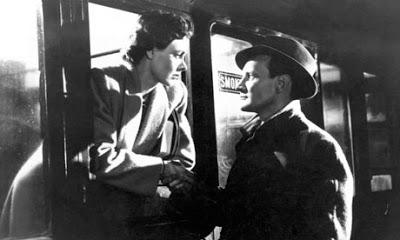
1946 is an interesting film year. It’s the first full year after World War II, so those actors who went to war are all back. Because of this, it’s a strong year, and an especially strong one for actors. That’s mildly belied by our five nominees, not all of whom really belong here. There are some clear choices who could be brought in here over some of our nominees, although there are a few of the five I’d want to keep. The one that some might argue for that I wouldn’t is Tyrone Power in The Razor’s Edge. I don’t take issue with Power, but he’s not the strongest part of the film. Either Edmond O’Brien or Burt Lancaster in The Killers would make an interesting choice, as would Glenn Ford in Gilda (even if that’s Rita Hayworth’s movie). I think some might nominate Humphrey Bogart for The Big Sleep, but I probably wouldn’t; it’s not close to my favorite of his performances. Cary Grant was never nominated enough, and Notorious could have been one for him. Both David Niven in A Matter of Life and Death and Bing Crosby in Road to Utopia may have been too flighty for the time. I’d genuinely consider Trevor Howard in Brief Encounter. The big miss here, though, is John Garfield, who was in both The Postman Always Rings Twice and Humoresque, either of which should have put him on the docket.
Weeding through the Nominees
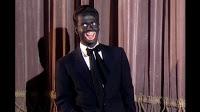
5. The Jolson Story was a star-making role for Larry Parks, who was sadly more or less lost to time because of HUAC. I get why people liked the role at the time—Jolson was still around and still had fans, and the film made him new fans. But it is a gurning performance, especially when Parks is on stage as Jolson. He’s better when the character is off stage. I get that it made Parks temporarily a star, but it’s scenery-chewing in the extreme. I can kind of see him being nominated at the time, but looking back on it today, there’s no way Larry Parks gets nominated today.
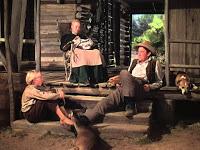
4. I’ve always been a fan of Gregory Peck, so it gives me no pleasure to remove him this early for The Yearling. I was a little nicer to him in the review I wrote on this. Peck is easy to like, and there’s a touch of Atticus Finch in his performance here. He’s good with the kid, and that goes a long way. But in a year that had this many good performances, there’s no clear reason for Gregory Peck to be in the mix here. Peck had plenty of great performances in his career. This one is merely good, and there’s no reason he should be here over John Garfield.
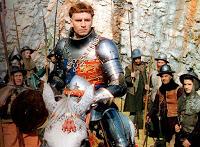
3. Were I voting in 1946, I would likely rank Laurence Olivier higher than third place. Unfortunately for him, I’m not voting in 1946 but voting now in a time that includes Kenneth Branagh’s version of the same Shakespearean play. Branagh’s version is superior in virtually every aspect, including the lead role. This is one of my favorite Shakespearean plays and it does hurt me a little to put it this low, but the truth is that I probably wouldn’t want it nominated. It’s fine. It’s even very good, but it’s not Best Actor good and doesn’t belong in the conversation.
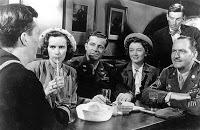
2. Of the five nominations, Fredric March is the first that I’m happy to see on the list. The Best Years of Our Lives is a wonderful film, and March, who had a long and illustrious career, is great in it. The only reason I don’t put him on the top here is because a great deal of the success of the film is its huge ensemble cast. March, as good as he is, isn’t even close to responsible for the success of the film, which means that even though I like this nomination, I like it only to a point. I could see leaving him off simply because he’s not really the focus of the film.
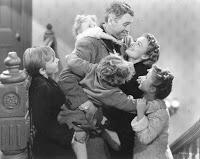
1. This leaves us with James Stewart and It’s a Wonderful Life, the perennial favorite of millions at Christmas. Of the five nominations, I like his performance the best for a number of reasons. It is, while not the most nuanced, the one that covers the most ground. Stewart goes from deepest despair to the most sublime joy over the course of the film, and at no time does it ever feel artificial. Stewart is great in this in what is possibly his most natural and realistic character portrayal, and so easily and clearly likable that it would have been so easy to vote for him. But in an open field, I’m still going elsewhere.
My Choice
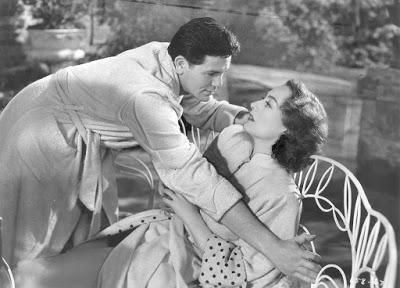
While I like the nomination of James Stewart here and I’m comfortable with that of Fredric March, I’m going elsewhere. It was a great year for John Garfield, and while he certainly could be nominated for The Postman Always Rings Twice, I’d pick Humoresque for a more nuanced performance that stands up to Joan Crawford. I’d probably put Trevor Howard just behind him for a tender and sweet performance in a film that truly needed that.
Final Analysis
